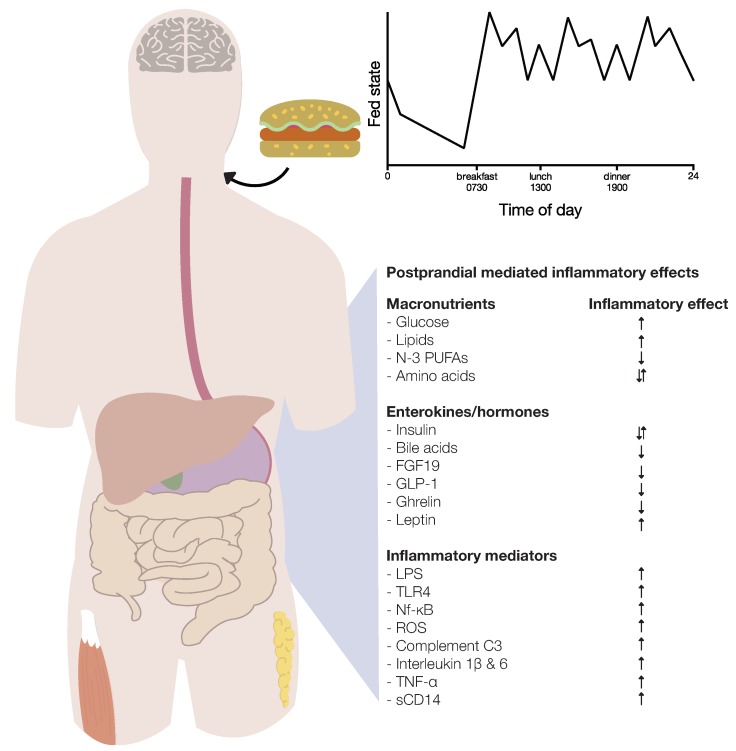Figure 1.
The postprandial period as an endocrine, metabolic and inflammatory framework. Meal ingestion results in a complex and multifactorial endocrine and metabolic response, which influences postprandial inflammation via different pathways. Ingestion of glucose and lipids induces postprandial inflammation, whereas amino acids have pro- and anti-inflammatory effects. During the postprandial period, the enterokines insulin, bile acids, fibroblast growth factor 19 (FGF19), glucagon-like peptide- 1 (GLP-1) and ghrelin are released and exert anti-inflammatory effects on postprandial metabolism. Leptin mediates negative effects in adipose tissue. Insulin also has pro-inflammatory effects. Furthermore, as a result of nutrient ingestion, several mechanisms (i.e., lipopolysaccharide (LPS), Toll-like receptor 4 (TLR4), nuclear factor kappa-light-chain-enhancer-of activated B cells (Nf-κB), reactive oxygen species (ROS), complement component factor 3 (C3), interleukins, Tumor Necrosis factor (TNF)-α and soluble CD14 are activated or produced, and stimulate postprandial inflammation.

